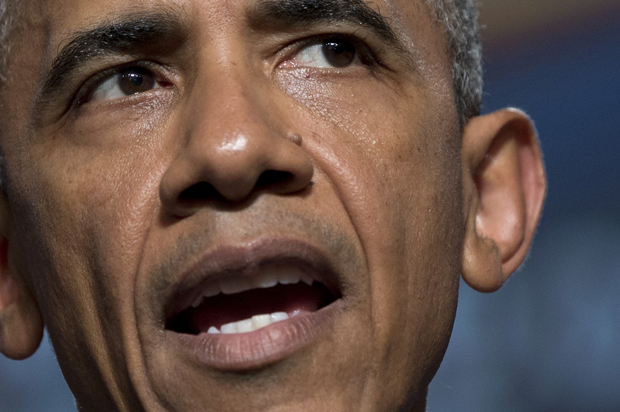It’s a lucky thing for President Barack Obama and the Democrats that the campaign of the Republican presidential nominee is such an unfocused disaster. Otherwise they might be feeling a bit more political heat over some recent bad news for the Affordable Care Act. Earlier this week, the health insurer Aetna announced that it will be withdrawing from several of the state-based insurance markets set up under the law. Aetna joined two other large insurers – Humana and UnitedHealthcare — in scaling back its participation, saying that it just couldn’t sustain the financial losses it was incurring in the ACA’s individual markets.
Obamacare works as a series of trade-offs between the government and health insurers. The insurance companies must insure anyone who wants to buy coverage, and those firms that participate in the ACA’s markets must offer plans that meet a certain minimum level of coverage. The government makes it worth their while by impelling customers to enter the markets (via the individual mandate) and offering subsidies to help customers buy insurers’ products. So the departure of a bunch of big insurers would seem to signal a huge problem with either the individual markets or the structure of the law, right?
Well, not exactly. “I don’t think it’s a particularly unusual situation where the firms are leaving the market,” University of California Riverside economist Robert Kaestner told me. “The fact that firms can leave and enter markets means the markets are, in fact, quite competitive.” The issue is the customer base that the insurers have to work with. “What the problem is, is that the individual mandate isn’t working to get enough healthy people into the market,” Kaestner said. “Those people who are in the market are in poor health and using a lot of resources, and this generates a high price.”
There are a few factors that account for this. It’s just now that penalties for not complying with the individual mandate are really kicking in. In 2015, the maximum penalty per household for not having insurance was $975. In 2016, the maximum is $2,085. In theory, the rising penalties should drive more healthy people to participate in the marketplaces, which will make them more attractive for insurers. “Increasing enrollment helps with most of these issues,” explained Harvard health economist Benjamin Sommers. “Some of the features of the law over time will likely lead to that. Things like the mandate penalty increasing each year [put] additional pressure on some of those folks who haven’t signed up to do so.”
One also has to keep in mind that the Affordable Care Act is still pretty young and the public isn’t fully engaged with the new health policy. A Kaiser health tracking poll in January found, “Many uninsured are largely disengaged from the health care system and opportunities for coverage, with large majorities being unaware of the date for the upcoming deadline to enroll or of the fine for not having health insurance in 2016.” The problem can be solved with more aggressive outreach and education by the administration and its allies, but over time it also might correct itself as people become more accustomed to the ACA. “It takes time for coverage expansions to really reach their full enrollment,” Sommers said. “This is not a new phenomenon. It does take a little time for people to understand their options and ultimately sign up.”
That said, there is an inherent tension in the relationship between the government and the private insurers. The government needs the insurers to participate in the marketplaces to make the law work and offers them incentives to do so. But it also regulates these insurers and doesn’t always act in the interests of their bottom lines. That tension was exposed by The Huffington Post’s scoop this week on Aetna’s July letter threatening to pull out from the exchanges if federal regulators opposed its merger with Humana. Aetna argued that the merger was necessary to offset the losses it experienced on the exchanges, but the government concluded that the merger was not in the public interest. So Aetna followed through on its threat.
One question that arises from all this is what, if any, policy changes can be implemented to lessen this tension. As Gary Legum has agued, one way to get around the problem is to push for a public option and have government-funded health coverage compete against the private insurers. (Hillary Clinton supports a public option, as does Barack Obama, for that matter.) Another way to do it would be to offer to the private insurers some more carrots: increasing funding and extending some of the risk-abatement features of the ACA to better protect insurance companies against losses.
The limiting factor in all this, of course, is politics. All those changes would require congressional approval, and barring a Trump-led electoral cataclysm for Republicans, they’re not going to let any adjustments to the ACA make it to the president’s desk.
So for the time being, the ACA will have to forge on as is. It’s obviously not good news that these large insurers are exiting the Obamacare marketplaces, but it’s a problem that can be fixed even if Congress is unwilling to do so.


